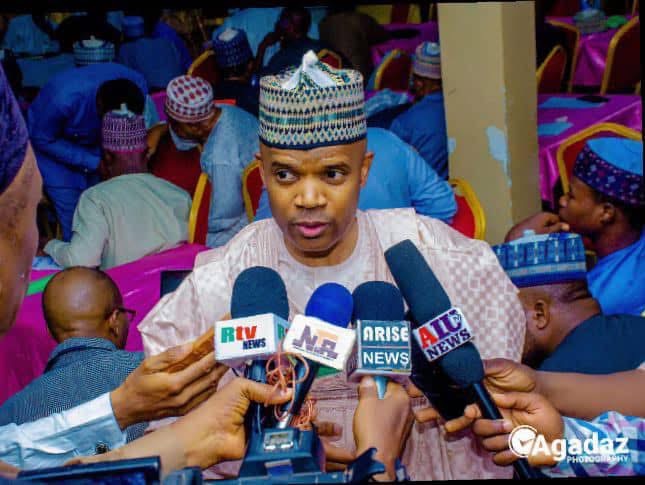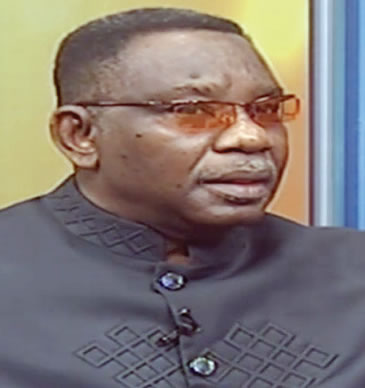Sokoto State Directs MDAs to Resubmit Amended 2026 Budget Proposals
Commissioner Zayyana Calls for Immediate Revisions to Ensure Fiscal Alignment with State Development Goals
In a significant move to strengthen fiscal governance and development planning, the Sokoto State Government has issued a directive to all Ministries, Departments, and Agencies (MDAs) to **amend and resubmit** their 2026 budget proposals without delay. The instruction comes from Dr. Abubakar Zayyana, Commissioner for Budget and Economic Planning, following a comprehensive series of bilateral budget discussions with government MDAs held at the ministry's headquarters .
### 1 Budget Revision Directive and Context
The bilateral discussions, which concluded on Tuesday, September 2, 2025, involved detailed reviews of each MDA's proposed expenditures and revenue projections for the upcoming fiscal year. Commissioner Zayyana emphasized the **critical importance** of timely submission of corrected budget documents to facilitate the consolidation of all proposals, which is an essential step in the state's 2026 budget preparation process .
During the negotiations, several MDAs were found to have submitted proposals that required **substantial amendments** to align with the state's fiscal framework and development priorities. The commissioner noted that the revisions are necessary to create a comprehensive picture of Sokoto State's total financial plan for 2026, encompassing overhead, recurrent, and capital expenditure components .
This directive follows closely on the heels of Zayyana's previous call last Wednesday for MDAs to intensify their **revenue generation efforts** to support the execution of key projects and programs for citizens. He had previously stressed that "budget performance is primarily driven by revenue," emphasizing that expenditure must be guided by available income .
### 2 Budget Consolidation Process
The consolidation of all MDA proposals represents a **crucial phase** in Sokoto State's budget cycle. According to Commissioner Zayyana, this process will "pave the way for the state's 2026 budget preparation" by providing a clear financial overview that enables informed decision-making .
*Table: Sokoto State Budget Preparation Timeline*
| **Date** | **Activity** | **Status** |
|----------|--------------|------------|
| August 27-28, 2025 | Bilateral budget discussions with MDAs | Completed |
| September 2, 2025 | Conclusion of discussions and directive for resubmission | Completed |
| Early September 2025 | Expected resubmission of amended proposals | Pending |
| Mid-September 2025 | Consolidation of all MDA proposals | Pending |
| Late September 2025 | Presentation to State Executive Council | Pending |
| October 2025 | Submission to State House of Assembly | Pending |
Once finalized, the consolidated budget will be presented to the **State Executive Council** for approval before being forwarded to the Sokoto State House of Assembly for legislative consideration. This process ensures both executive and legislative oversight of the state's financial planning .
The commissioner commended the active participation of senior government officials in the bilateral discussions, particularly noting that the presence of the State Head of Service and some commissioners who personally led their teams was "highly motivating and encouraging" .
### 3 Strategic Alignment with Development Agenda
The budget revision directive is strategically positioned to support Governor Ahmed Aliyu's **nine-point smart agenda**, which focuses on key development priorities for Sokoto State. Commissioner Zayyana emphasized that the goal of the bilateral discussions was to "deliberate with the officials of the MDAs on their proposals to come up with a well-focused and realistic budget" that aligns with this agenda .
The revised budget aims to balance **fiscal responsibility** with developmental needs, ensuring that citizen aspirations are captured in the final budget document. According to Zayyana, "the views and aspirations of citizens would also be considered in the budget document" before it undergoes executive and legislative approval .
This approach reflects a broader trend in subnational governance in Nigeria toward **participatory budgeting** and greater accountability in public financial management. By engaging MDAs in detailed discussions and requiring revisions where necessary, the Sokoto State Government aims to optimize resource allocation and maximize developmental impact.
### 4 MDA Participation and Response
The bilateral discussions witnessed **strong engagement** from various government agencies, with many high-ranking officials personally participating in the budget negotiation process. Among those who presented their proposals were the Head of Service, Alhaji Sulaiman S/Fulani, and several commissioners including those from Finance, Lands and Housing, Higher Education, Basic and Secondary Education, Science and Technology, Health, and Information .
*Table: Key MDAs Participating in Budget Discussions*
| **Ministry/Department/Agency** | **Representative** | **Response** |
|--------------------------------|-------------------|--------------|
| Office of the Head of Service | Alhaji Sulaiman S/Fulani | Praised ministry's innovative approach |
| Ministry of Finance | Engr. Muhammadu Shagari | Appreciated guidance on scientific budgeting |
| Ministry of Lands and Housing | Engr. Ahmad Tambuwal (representing) | Expressed satisfaction with allocation guidance |
| Ministry of Higher Education | Prof. Isah Maishanu | Pledged alignment with government directives |
| Ministry of Basic and Secondary Education | Prof. Ahmad Ala | Committed to positive development |
| Economic Adviser's Office | Dr. Bashir Muhammad Achida | Gave "pass mark" to budget officials |
The Head of Service expressed his satisfaction with the **innovative approach** taken by the Ministry of Budget and Economic Planning, describing the engagement as "robust and fruitful" and noting that it would add value to his office's budget allocations .
Similarly, the Commissioner of Finance, Engr. Muhammadu Shagari, and the Commissioner for Lands and Housing, Nasiru Dantsoho (represented by Permanent Secretary Engr. Ahmad Tambuwal), appreciated the Ministry of Budget and Economic Planning for providing proper guidance that kept their proposals within the allocated budget envelopes .
Dr. Bashir Muhammad Achida, the Economic Adviser to the Governor, praised the ministry for "effectively fulfilling its responsibility of aligning government spending with policy priorities," describing its performance as worthy of a "pass mark" .
The budget revision directive builds upon earlier efforts to strengthen Sokoto State's revenue base. Just days before the bilateral discussions, Commissioner Zayyana had challenged MDAs to "devise more ways to generate revenue for the government," emphasizing that revenue rather than expenditure should drive budget planning .
This focus on internally generated revenue (IGR) reflects a growing recognition among state governments in Nigeria of the need to reduce dependence on federal allocations and develop more sustainable funding models for state-level projects and programs.
During the bilateral discussions, the Director of Budget, Alhaji Buhari Umar Musheshe, explained that the deliberations were guided by three key principles ceiling, ranking, and description. He emphasized that all MDAs must ensure projects and programs are ranked by priority and clearly described to meet the administration's development targets .
This structured approach to budget planning aims to ensure that limited resources are allocated to the most critical areas that will drive development and improve service delivery to Sokoto State residents.
As Sokoto State MDAs work to amend and resubmit their budget proposals, the government remains focused on producing a realistic budget that balances available resources with development needs. The consolidated budget will represent a crucial blueprint for the state's development priorities in the coming year.
The active participation of MDAs in the revision process, coupled with the technical guidance provided by the Ministry of Budget and Economic Planning, suggests a **collaborative approach** to fiscal governance that may yield more effective resource allocation and implementation.
Once consolidated, the budget will proceed through the approval process, including review by the State Executive Council and legislative consideration by the State House of Assembly. This **multi-tiered process** ensures appropriate scrutiny and oversight before the budget becomes law.
The outcome of this budget preparation process will be closely watched by residents of Sokoto State and governance observers alike, as it represents a critical test of the state's ability to align financial resources with development objectives in a challenging economic environment.
This is a developing story. Additional details may emerge as MDAs resubmit their proposals and the consolidation process progresses.

 Ex-Lagos PDP Chieftains Defect to ADC Amid Party Crises
Ex-Lagos PDP Chieftains Defect to ADC Amid Party Crises